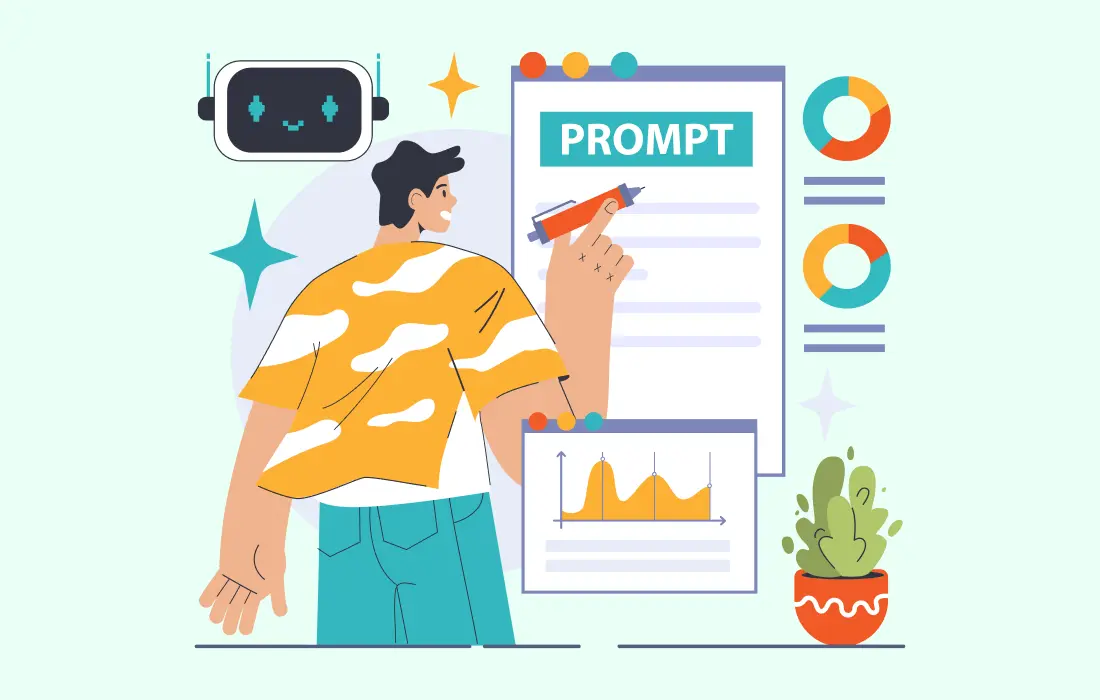Generative AI is no longer a futuristic concept; it’s a powerful tool transforming how businesses create, innovate, and interact. From crafting marketing copy and generating code to designing compelling visuals and streamlining customer support, Large Language Models (LLMs) and other generative AI systems are unlocking unprecedented efficiencies. But with great power comes the need for precise guidance. This is where the “Prompt Engineer” Consultant emerges as an invaluable asset, helping businesses truly master the art and science of generative AI outputs.
What is Prompt Engineering, and Why Does it Matter?
At its core, prompt engineering is the art and science of designing and optimizing the input (the “prompt”) given to an AI model to elicit the desired output. Think of it as speaking the AI’s language. A vague instruction will lead to a vague or irrelevant response. A well-crafted, nuanced prompt, however, can unlock the AI’s full potential, leading to accurate, relevant, and high-quality results.
For businesses, the stakes are high. Inconsistent or poor AI outputs can lead to:
- Wasted time and resources: Constant revisions and corrections negate the efficiency gains AI promises.
- Subpar content: Generic or inaccurate outputs damage brand reputation and user engagement.
- Missed opportunities: The inability to leverage AI effectively means falling behind competitors.
- Ethical concerns: Biased or inappropriate AI-generated content can lead to serious repercussions.
This is precisely why the role of a Prompt Engineer, especially in a consulting capacity, has become critical.
The Role of a Prompt Engineer Consultant
A Prompt Engineer Consultant acts as the bridge between a business’s objectives and the capabilities of generative AI. They are more than just wordsmiths; they possess a unique blend of linguistic expertise, technical understanding of AI models, and deep business acumen. Their responsibilities often include:
- Strategic Assessment and Goal Alignment: They begin by understanding a business’s specific needs, pain points, and strategic goals. This involves identifying areas where generative AI can provide the most value, whether it’s content creation, customer service automation, data analysis, or product design.
- Custom Prompt Development: This is their core competency. They craft tailored prompts that go beyond simple commands, incorporating techniques like:
- Zero-shot prompting: Guiding the AI to perform a task it hasn’t been explicitly trained on.
- Few-shot prompting: Providing examples to clarify expectations and guide the AI.
- Chain-of-thought prompting: Breaking down complex tasks into sequential steps for the AI to follow.
- Role-playing: Assigning a specific persona to the AI to influence its tone and style.
- Iterative Testing and Optimization: Prompt engineering is rarely a one-shot process. Consultants continuously test and refine prompts, analyzing the AI’s outputs, identifying areas for improvement, and iterating until the desired quality and consistency are achieved. This involves understanding the nuances of different AI models (e.g., GPT-4 vs. Google Gemini) and their respective strengths.
- Building Prompt Libraries and Frameworks: To ensure scalability and consistent application of AI across an organization, consultants help build comprehensive libraries of successful prompts and robust frameworks for prompt design. This empowers internal teams to leverage AI effectively even without deep prompt engineering expertise.
- Workflow Integration and Automation: They advise on how to seamlessly integrate AI-generated outputs into existing business workflows and applications, automating repetitive tasks and enhancing productivity.
- Training and Upskilling Internal Teams: A key aspect of a consultant’s role is knowledge transfer. They train internal teams on prompt engineering best practices, empowering employees to become proficient in interacting with AI tools.
- Ethical Oversight and Bias Mitigation: Recognizing the potential for AI to generate biased or unethical content, prompt engineers actively monitor outputs and refine prompts to ensure fairness, cultural sensitivity, and alignment with ethical guidelines.
- Staying Ahead of the Curve: The AI landscape is constantly evolving. Consultants remain abreast of the latest advancements in AI models, prompting techniques, and industry trends to provide cutting-edge solutions.
Why Businesses Need a Prompt Engineer Consultant
While generative AI tools are increasingly accessible, extracting maximum value requires specialized expertise. A Prompt Engineer Consultant brings:
- Accelerated Adoption: They help businesses quickly move beyond experimentation to effective implementation of AI.
- Optimized ROI: By ensuring high-quality, relevant outputs, they maximize the return on investment in AI technologies.
- Reduced Risk: Their expertise in ethical considerations and bias mitigation helps businesses avoid potential pitfalls.
- Competitive Advantage: Businesses that master AI outputs can innovate faster, personalize experiences, and gain a significant edge.
- Empowered Workforce: By enabling employees to effectively use AI, they foster a more productive and innovative work environment.
In an era where generative AI is becoming as fundamental as the internet, the Prompt Engineer Consultant is quickly becoming indispensable. They are the navigators guiding businesses through the complexities of AI, ensuring that the incredible power of these tools is harnessed not just for output, but for impactful, intelligent, and truly transformative outcomes. If your business is looking to unlock the full potential of generative AI, a prompt engineer consultant might just be the guiding hand you need.


